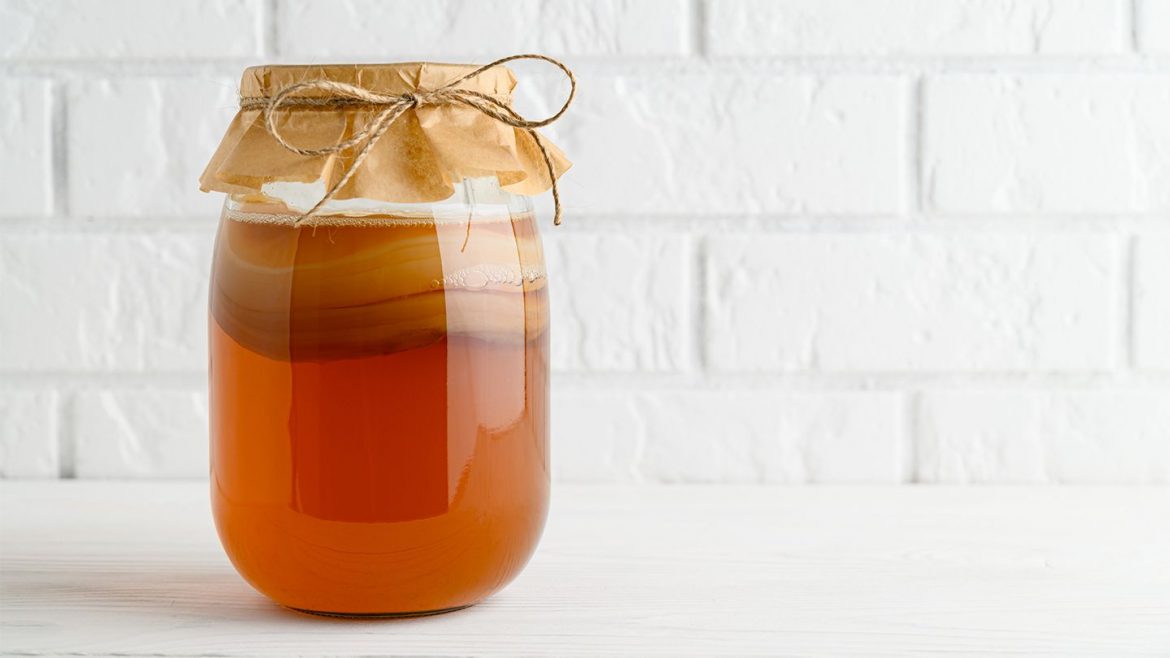Kombucha, a fermented tea enjoyed for centuries, is making waves today all over social media for its health benefits.
Originally dubbed the “elixir of immortality” in Asia, this tangy and effervescent drink is packed with probiotics and other nutrients that can support your well-being. But what does kombucha really offer, and how can you make it at home?
1. Probiotics for gut health
Kombucha is rich in probiotics—good bacteria and yeast that are essential for a healthy digestive system. These microorganisms help balance your gut flora, improving digestion and even potentially preventing digestive issues like ulcers.
Drinking kombucha regularly can promote a robust digestive system, making it an excellent addition to your diet, especially after a heavy meal.
2. Nutrient-rich and vitamin-packed
Beyond probiotics, kombucha is a source of essential nutrients and vitamins, including B vitamins and vitamin C. The fermentation process also enhances the bioavailability of these nutrients, making them easier for your body to absorb. Additionally, kombucha contains beneficial organic acids, such as glucuronic acid, which may support liver health.
3. Antioxidants and disease prevention
Kombucha’s antioxidants, primarily derived from the tea used in brewing, help combat free radicals—unstable molecules that can accelerate aging and contribute to diseases.
Regular consumption of kombucha may reduce inflammation, protect against chronic conditions like heart disease and diabetes, and even support your immune system.
4. Natural antibacterial properties
The fermentation process in kombucha produces organic acids that have antibacterial properties. These acids can help eliminate harmful bacteria while allowing the beneficial probiotics to thrive.
Kombucha, particularly when made with green or black tea, may help protect against infections and support overall health.
5. Low in sugar
Compared to traditional carbonated drinks, kombucha is low in sugar. With only about 30-50 grams of sugar per liter, it’s a healthier alternative to soda, which can contain up to 130 grams per liter.
You can even customise your homemade kombucha to reduce the sugar content further, making it a perfect option for those looking to cut back on sugar without sacrificing flavour.
How to make Kombucha at home
Making kombucha at home is easy, affordable, and customisable. Here’s a simple recipe to get you started:
Ingredients:
- 4 cups of water
- 4 black or green tea bags
- 1 cup of sugar
- 1 cup of store-bought Kombucha (unflavoured, with live cultures) or a SCOBY (Symbiotic Culture of Bacteria and Yeast)
- 7 cups of water (for the final brew)
Instructions:
- Brew the tea: Boil 4 cups of water and add the tea bags. Stir in 1 cup of sugar until dissolved. Let the tea cool completely.
- Add the SCOBY: Once the tea is cool, pour it into a large glass jar. Add 7 cups of water and the store-bought kombucha or your SCOBY.
- Ferment: Cover the jar with a clean cloth and secure it with a rubber band. Let it sit at room temperature, out of direct sunlight, for 7-10 days.
- Taste and bottle: After a week, taste the kombucha. If it’s tangy enough for your liking, remove the SCOBY and set it aside for your next batch. Pour the kombucha into bottles, leaving some space at the top.
- Optional second fermentation: For a fizzier drink, you can add a small amount of fruit juice or herbal tea to each bottle before sealing it. Let the bottles sit at room temperature for an additional 2-3 days before refrigerating.
Enjoy your homemade kombucha, knowing you’re sipping on a beverage that’s both delicious and good for your health!
Kombucha is more than just a trendy drink; it’s a powerful ally for your digestive health, packed with vitamins, antioxidants, and beneficial bacteria. Plus, making it at home is a fun and easy way to enjoy all these benefits. Why not give it a try and brew your own batch today?
ALSO: The health benefits of sea moss
Feature image: Pexels

